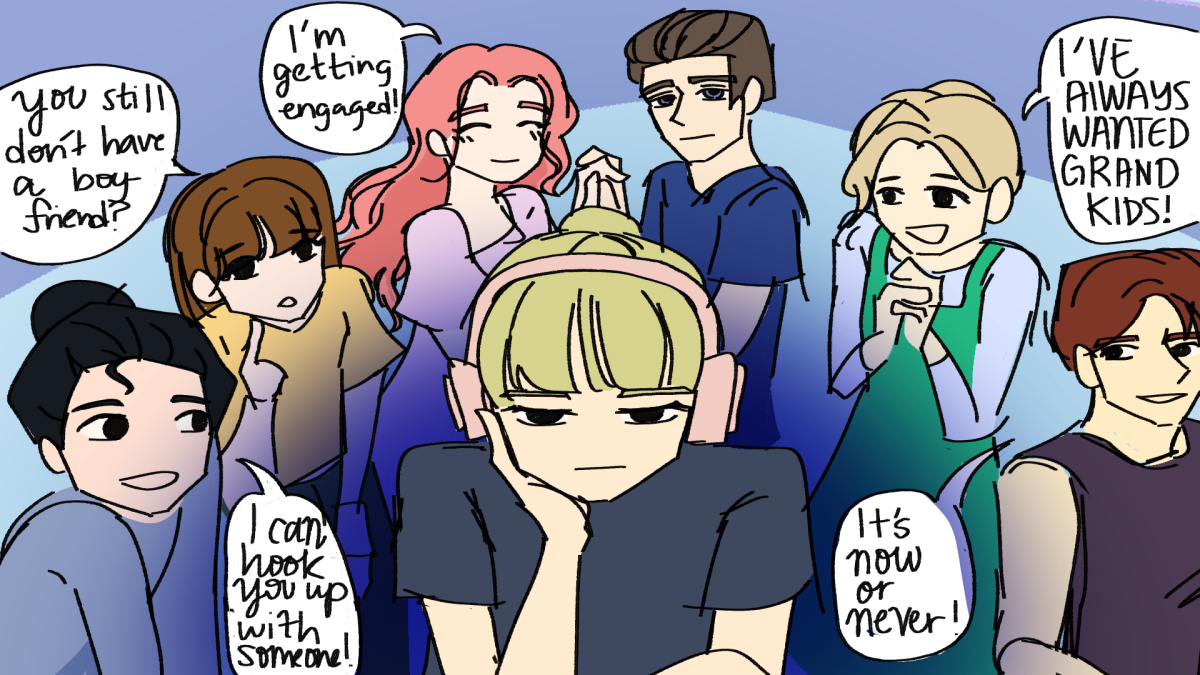Though it is common for college students to feel pressured to be in romantic relationships during college, this generation is actually forming fewer social connections than ever before.
Megan Glancy, a sociology and anthropology professor, said that shifts in today’s society — from the economy to personal preferences — have hindered our ability to connect with others. However, Glancy said today’s struggle to find companionship is not limited to romantic partnerships.
“We’re not even making friendly relationships or having social connections,” Glancy said. “So it’s tough. And then the same folks say that when they want to date, that it’s tough for people to date, that there’s a lot of obstacles to finding suitable partners.”
Glancy said another factor that makes forming these relationships tough is that more and more young people are living with their parents because of financial instability, which can make finding a partner more difficult and less of a priority.
“There’s still a stigma in our society about living at home, especially at a certain age, and bringing home a date to your parents’ home,” Glancy said.
Moreover, while this loneliness epidemic is affecting everyone, women are more likely to be scrutinized for being single than their male counterparts.
“The phenomenon is called ‘the relationship imperative,’ and it’s essentially the idea that we are incentivized, we’re encouraged socially, to be in relationships, but that women are disproportionately so, because there’s a stigma for women being single,” Glancy said.
However, Glancy said students need to keep pushing to form these relationships, as they keep us healthier.
“When we look at ways to prevent poor health, poor mental health and promote just general well-being, a lot of that is built around building up communities,” Glancy said.
Olivia Arsenault, a third-year studying English, agreed that friendly relationships fulfill needs that romantic relationships might not.
“I feel like platonic love is usually your friends and your close family, and they’re vital for your sanity, honestly,” Arsenault said. “Having people to talk to, and then your romantic love, it’s kind of they fit into that role, but they also have more responsibility in your life at the same time.”
David Garfinkle, a third-year studying business administration, had similar thoughts on the importance of friendships.
“I think having people you have been friends with for way longer than you’ve had a romantic partner adds more of a consistency, and you know what you’re going to get in security, I guess,” Garfinkle said. “Romantic relationships kind of go either way. You never know what can happen.”
Charlotte Putnam, a third-year studying genetics, said social relationships help navigate new lifestyles.
“I think both [relationship types] are really important for college-age students trying to build community somewhere where they’re not in a community they’re used to,” Putnam said.
The need for social connection cannot be understated, yet students are lonelier than ever and facing less pressure to find partners as other aspects of life take priority.
“Keep trying to make relationships, because it’s one of the few things that we have control over right now, how we treat other people and how we value what they bring to this world,” Glancy said.








